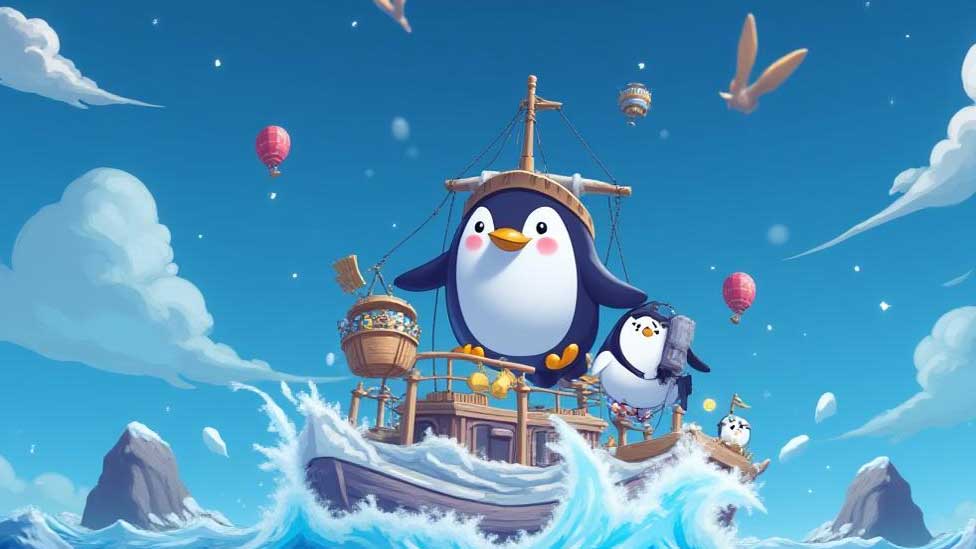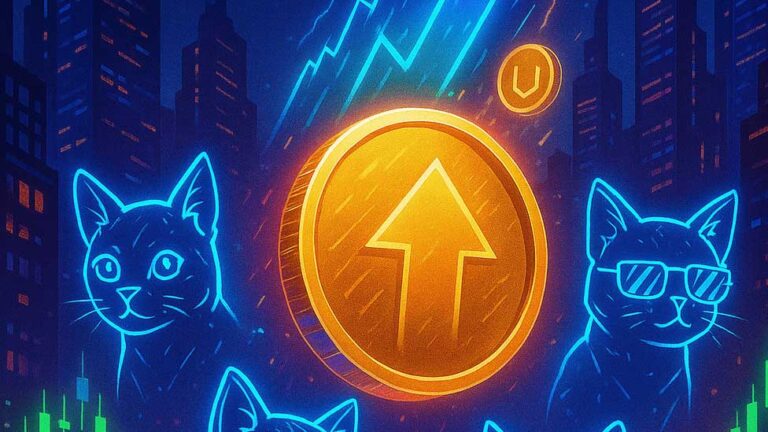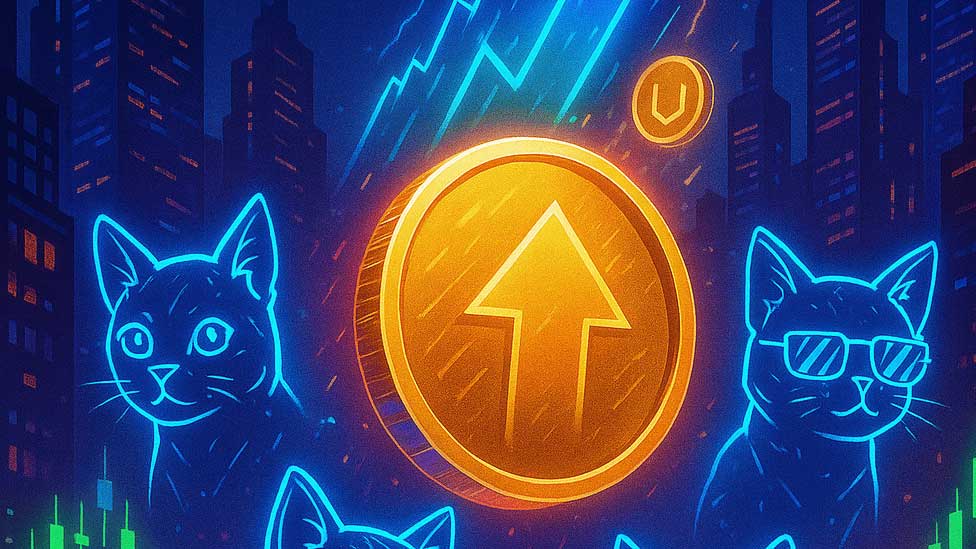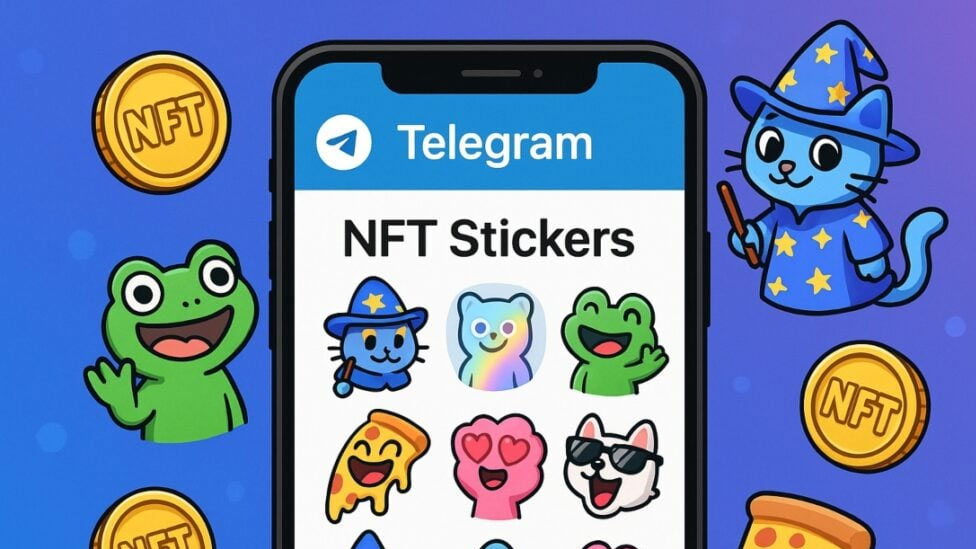Pudgy Penguins, one of the most recognizable NFT profile picture (PFP) collections, has announced OpenSea as its official marketplace, consolidating its digital assets on one of the industry’s largest trading platforms. The move reflects the brand’s broader strategy to simplify access, strengthen visibility, and expand appeal among both crypto-native and mainstream audiences.
The decision comes at a pivotal time for the Pudgy Penguins ecosystem, which has grown far beyond its origins as a digital collectible project. From the launch of a mobile game to retail partnerships and a book deal, the brand is steadily evolving into a multi-platform franchise.
A Strong Player in the NFT Market
Despite market fluctuations, Pudgy Penguins continues to hold its ground as a leading PFP collection. The current floor price sits at 9.95 ETH, or roughly $42,700, a steady position compared to its more volatile past. In late 2023, ahead of the highly anticipated PENGU token airdrop, the floor surged to 30 ETH.
While the PENGU token has seen ups and downs since its debut, it has climbed an impressive 660% from April 2025 lows. Trading at $0.029, the token now carries a fully diluted valuation of $2.3 billion. Still, it remains more than 30% below its all-time high recorded in mid-2024, highlighting both the potential and the risks inherent in the space.
Gaming as the Next Frontier
Pudgy Penguins’ foray into mobile gaming is proving to be a game-changer. The studio’s debut title, Pudgy Party, launched on August 29 and quickly rose to the top of Apple’s App Store racing category. The free-to-play multiplayer title offers six distinct game modes, from survival challenges to fast-paced races.
Players can unlock and upgrade penguin characters, each boasting unique abilities in speed, offense, and endurance. Cosmetic skins and leaderboard competitions add to the appeal, creating an experience that is approachable for casual gamers while still offering depth for dedicated players.
What sets Pudgy Party apart is its subtle approach to Web3 integration. While NFTs underpin part of the game’s economy, the core gameplay avoids overwhelming players with crypto terminology. Special penguin NFTs can be earned or purchased, then traded or displayed in-game, but users need only connect an external wallet if they wish to engage with the blockchain layer. This design reflects the team’s philosophy of making it “a game first,” with crypto functionality serving as an optional enhancement.
Balancing Accessibility and Monetization
Despite its strong reception, Pudgy Party faces challenges familiar to the free-to-play model. Multiple in-game currencies, some poorly explained, risk confusing players. Meanwhile, the “fish pass,” a premium battle pass offering accelerated progression, raises questions about balancing accessibility with monetization.
These issues will be critical for Pudgy Penguins to address as it seeks to attract both casual gamers and blockchain enthusiasts. For now, the early success of the game shows the potential of blending fun, accessible design with NFT-driven rewards.
Expanding Beyond the Blockchain
Under the leadership of CEO Luca Netz, Pudgy Penguins has charted a course that extends far beyond the crypto world. In 2024, the brand partnered with major retailers including Walmart and Amazon to release a line of toys inspired by its penguin characters. A children’s book deal with publishing giant Random House has further broadened its cultural reach, signaling ambitions to establish itself as a family-friendly franchise as much as a crypto-native brand.
This multi-pronged strategy echoes the trajectory of other successful digital-first properties that later transitioned into mainstream entertainment. By combining blockchain innovation with tangible products and accessible gaming, Pudgy Penguins is positioning itself as a bridge between two worlds that often seem at odds—crypto culture and everyday consumer markets.
A Brand in Transition
The choice of OpenSea as its official marketplace underscores this transition. For crypto investors, it offers a trusted, liquid venue for NFT trading. For newcomers drawn by the toys, books, or mobile game, it provides a streamlined entry point into the NFT economy.
While challenges remain—ranging from token volatility to user education—Pudgy Penguins has demonstrated resilience and creativity in navigating them. The brand’s success will ultimately hinge on its ability to maintain credibility in crypto circles while capturing the imagination of mainstream consumers.
As Netz and his team continue to push into gaming, publishing, and retail, Pudgy Penguins may serve as a case study for how an NFT collection can evolve into a global entertainment franchise—one that spans digital wallets, app stores, and toy shelves alike.
















